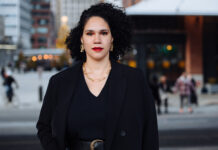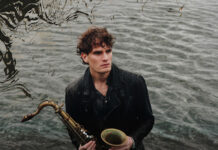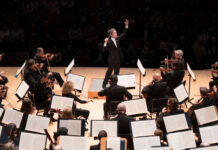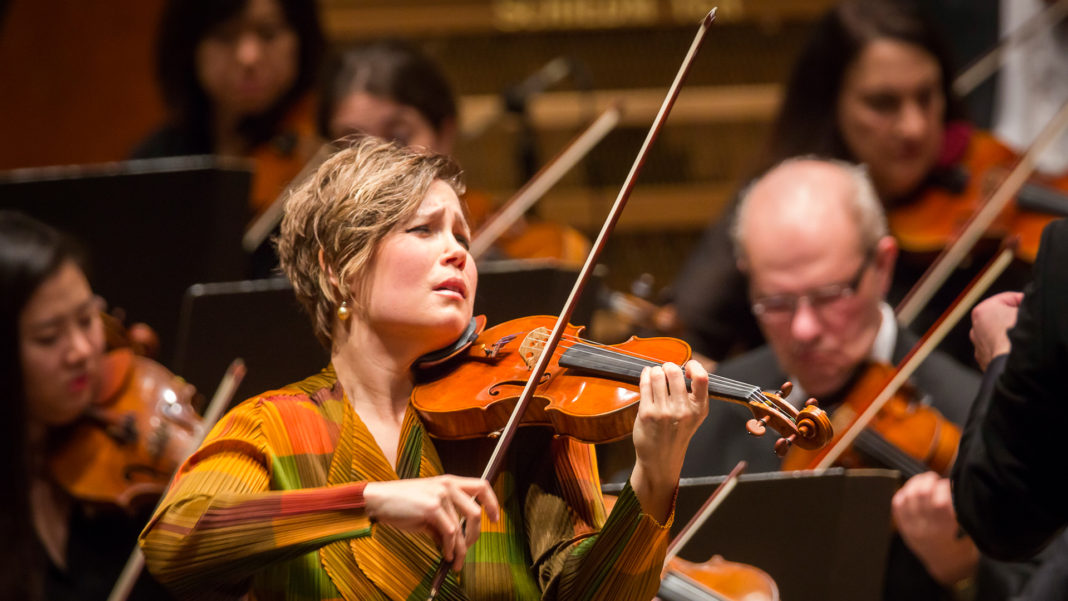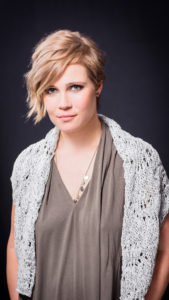
When violinist Leila Josefowicz takes to the stage for tonight’s A Tribute to Oliver Knussen at Walt Disney Concert Hall, she will once again be performing music that many other musicians choose to ignore. As we continue our conversation with Josefowicz that began last week, she will discuss the choices she’s made in her career and how she got to the place where contemporary music was her emphasis.
“The first time I said to my manager, who is no longer my manager, I said, ‘I want to perform this [John] Adams piece.’ I was 20 or 21 years old at the time,” she reveals when we spoke by phone. “And they said, ‘Well, this piece has already been done five times. I’m not sure you’ll get more performances of this.’ I thought, ‘What’s wrong with this?'”
For many violinists there are “The Big 5” concerti that are most commonly performed. The composers on this list are Beethoven, Brahms, Bruch, Mendelssohn and Tchaikovsky. But Josefowicz wasn’t fully satisfied performing those works.
“When I played Tchaikovsky and all those things and got applause after the first movement – which is typical – I was asking why do I not feel satisfied. I was 18 or 19 and I was not quite going down the newer music path yet. I didn’t know the answers yet except I can’t spend my whole career doing this. I have to make changes and I have to figure this out.”
It was when she performed the Adams that it started to come into focus.
“The John Adams was the first piece of a living composer I met and worked on. It was my first experience and it was so incredible. It became my answer. It takes time to feel like you know the answers to these questions.”
Being the performer who is taking the non-traditional route meant there was bound to be some grousing about the long-term viability of such a decision.
“There were some comments about pigeon-holing. But I thought go ahead and pigeon-hole me. If I’m great at 20th and 21st century music, great. I didn’t see the threat to that. Later if I wanted to change course, I’d change course.” She took a pause before adding, “I have no desire to change course.”
As a soloist, Josefowicz also likes the rush of energy that comes from giving a world premiere performance. In 2009, she gave the first performance of Esa-Pekka Salonen’s Violin Concerto at Walt Disney Concert Hall with the Los Angeles Philharmonic.
“We are always high on adrenalin,” she says thinking back to the April night. “It was his second to last week as Music Director and they love him. It was a very sentimental and charged time. Everyone, the orchestra and audience, was all on the edge of their seat. You never know about world premieres. It’s like a birth. You hope the piece getting born will have a long and healthy life.”
As many composers have said, having the world premiere of a new work is easier than getting repeat performances. But Josefowicz knows one way to assure additional performances.
“Depending on the notoriety of the composer and how well different administrations around the world know the composer, it really does depend how often you get those performances. Knussen, Adams, Salonen, these people are composer/conductors and I am attracted to this because not only they great composers, but they conduct their own music. They can program their own music and that makes it easier in the life of the piece. The best advice I can give any composer is to learn to conduct well because there’s a chance you can conduct your own music. Orchestras love this. There’s real authority to that.”
Whether a work is new or part of the standard repertoire, Josefowicz feels music has transformative power. As she told The Telegraph in 2005, “There so much fear and ange rain the world and music is a way of transporting people.” Her perspective on that has not changed.
“I think it has always been totally vital. We go through very dark periods. I think the technology that is happening in the world today is sort of taking the world over. We can survive in life without a smart device. It really does bring a certain purity to what we’re doing with horsehair, wood, putting notes on paper and expressing them. There’s definitely in my mind a clean purity to that live performance; the human aspects of performing and expression. So it’s always going to be very important. How the world evolves, we’ll see.”
Photos of Leila Josefowicz by Chris Lee (Courtesy of LeilaJosefowicz.com)


